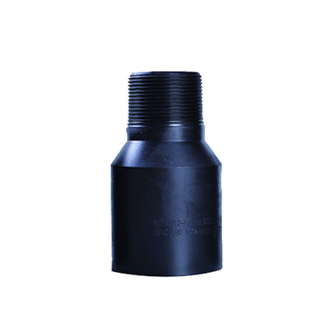- Afrikaans
- Albanian
- Amharic
- Arabic
- Armenian
- Azerbaijani
- Basque
- Belarusian
- Bengali
- Bosnian
- Bulgarian
- Catalan
- Cebuano
- Corsican
- Croatian
- Czech
- Danish
- Dutch
- English
- Esperanto
- Estonian
- Finnish
- French
- Frisian
- Galician
- Georgian
- German
- Greek
- Gujarati
- Haitian Creole
- hausa
- hawaiian
- Hebrew
- Hindi
- Miao
- Hungarian
- Icelandic
- igbo
- Indonesian
- irish
- Italian
- Japanese
- Javanese
- Kannada
- kazakh
- Khmer
- Rwandese
- Korean
- Kurdish
- Kyrgyz
- Lao
- Latin
- Latvian
- Lithuanian
- Luxembourgish
- Macedonian
- Malgashi
- Malay
- Malayalam
- Maltese
- Maori
- Marathi
- Mongolian
- Myanmar
- Nepali
- Norwegian
- Norwegian
- Occitan
- Pashto
- Persian
- Polish
- Portuguese
- Punjabi
- Romanian
- Russian
- Samoan
- Scottish Gaelic
- Serbian
- Sesotho
- Shona
- Sindhi
- Sinhala
- Slovak
- Slovenian
- Somali
- Spanish
- Sundanese
- Swahili
- Swedish
- Tagalog
- Tajik
- Tamil
- Tatar
- Telugu
- Thai
- Turkish
- Turkmen
- Ukrainian
- Urdu
- Uighur
- Uzbek
- Vietnamese
- Welsh
- Bantu
- Yiddish
- Yoruba
- Zulu
bull plug vs hex plug
Bull Plug vs Hex Plug A Comprehensive Comparison
In the realm of plumbing and engineering, various types of plugs are utilized to efficiently seal openings and secure connections in pipes, fittings, and other components. Among these options, bull plugs and hex plugs are two popular types that serve distinct purposes, each with unique features and applications. Understanding the differences between these two types of plugs is essential for selecting the right one for your specific needs.
Bull Plugs Features and Applications
Bull plugs, also known as round plugs or cap plugs, are characterized by their rounded tops and cylindrical bodies. They are usually designed to fit snugly into the opening of a pipe or fitting, creating a tight seal to prevent leakage. Bull plugs are made from various materials, including brass, stainless steel, and plastic, making them suitable for a wide range of applications across industries.
One of the primary advantages of bull plugs is their ease of installation. The rounded design allows for quick insertion, and they can often be installed by hand, requiring minimal tools. This feature makes bull plugs particularly useful in situations where space is limited or where quick access is needed for maintenance and repairs.
Bull plugs are commonly utilized in plumbing systems, HVAC applications, and automotive industries. They can effectively seal off unused ports on engines and fit over openings in plumbing fixtures, preventing debris from entering the system. Additionally, bull plugs are advantageous in environments where pressurized systems are in place, as they are engineered to withstand substantial internal pressure without compromising the seal.
Hex Plugs Features and Applications
In contrast, hex plugs feature a hexagonal shape, which allows for easy tightening and loosening with a wrench. This design makes hex plugs particularly convenient for applications where a secure connection is paramount. Hex plugs are typically used in scenarios where higher torque is required, offering a robust solution for sealing openings in various plumbing and industrial applications.
bull plug vs hex plug

The materials used for hex plugs are similar to those of bull plugs, with options such as brass, stainless steel, and other metals, ensuring durability and resistance to corrosion. One of the standout features of hex plugs is their ability to create a permanent seal. Once tightened, they can provide a reliable, leak-proof connection, making them an ideal choice for piping systems that require long-term integrity.
Hex plugs are often found in high-pressure applications, such as hydraulic systems, oil and gas pipelines, and chemical processing. Their design allows engineers and technicians to apply the necessary torque for a secure fit, ensuring that the system can handle the demanding conditions typically associated with these environments.
Comparative Analysis
When comparing bull plugs and hex plugs, it is essential to consider the specific requirements of the application. Bull plugs are ideal for scenarios where ease of installation and quick access are priorities. They offer versatility and can be utilized in various industries, performing well in low to moderate pressure situations.
On the other hand, hex plugs shine in applications that demand higher torque and secure sealing. Their unique design allows for the application of significant force, making them suitable for high-pressure systems where leaks are unacceptable.
Conclusion
In conclusion, the choice between bull plugs and hex plugs ultimately depends on the specific needs of your project. Bull plugs offer convenience and versatility, while hex plugs provide strength and torque for critical applications. By understanding the features and applications of each type of plug, you can make an informed decision that ensures the integrity and efficiency of your plumbing or engineering systems. Whether you are sealing a minor opening or securing a high-pressure pipeline, selecting the right plug is essential for optimal performance and reliability.
-
Tubing Pup Joints: Essential Components for Oil and Gas OperationsNewsJul.10,2025
-
Pup Joints: Essential Components for Reliable Drilling OperationsNewsJul.10,2025
-
Pipe Couplings: Connecting Your World EfficientlyNewsJul.10,2025
-
Mastering Oilfield Operations with Quality Tubing and CasingNewsJul.10,2025
-
High-Quality Casing Couplings for Every NeedNewsJul.10,2025
-
Boost Your Drilling Efficiency with Premium Crossover Tools & Seating NipplesNewsJul.10,2025







